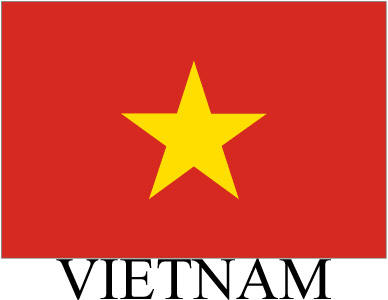Vietnam may run out of rice to export by 2020
 Hanoi - Vietnam, the world's number two rice exporter, may cease exports by 2020 unless the government slows the conversion of agricultural land to other uses, a government official said Thursday.
Hanoi - Vietnam, the world's number two rice exporter, may cease exports by 2020 unless the government slows the conversion of agricultural land to other uses, a government official said Thursday.
"Localities are racing with each other to ask the government for permission to convert agricultural land to non-agricultural uses, like golf courses," Nguyen Tri Ngoc, director of the Ministry of Agriculture and Rural Development's cultivation department, told the German Press Agency dpa.
"If this situation continues uncontrolled, combined with the current rate of population growth, it will be hard to satisfy the demand for rice exports by 2020," Ngoc said.
Ngoc said farmers have also been cutting back on rice cultivation due to low profit margins.
The Vietnamese state-run newspaper Tien Phong reported Thursday that the Mekong Delta region, the rice basket of Vietnam, grew 19 million tons of paddy rice on 1.9 million hectares in 2007. By 2020 the area farmed is expected to fall to 1.8 million hectares, while improved efficiency is expected to raise harvests to 20.7 million tons.
Vietnam's population is expected to grow by 13 million in that period, to 99 million. Unless productivity rises faster than expected, Ngoc said, Vietnam will have just enough rice for domestic demand.
Vietnam's problems are part of a coming global squeeze on rice supplies, said Samarendu Mohanty, senior economist at the International Rice Research Institute in Manila.
"World rice demand is at an all-time high," Mohanty said. Meanwhile, "Yield growth has been slowing for many years."
Mohanty said yield growth per hectare is running at 0.7 per cent per year, while demand is growing at about the same rate as global population, or 1.3 per cent. Suppliers have so far met demand by expanding the area under cultivation, adding 10 million hectares worldwide in the past seven years.
But with increasing conversion of rice paddy land to biofuels, urbanization and other uses, that solution is no longer possible.
"We are very concerned about preserving national food security," Ngoc said. He said his department had asked the government to use all possible means to preserve fertile farmland.
Mohanty said land use should be governed by market principles, and that the solution was to increase investment in irrigation and scientific development of more productive strains of rice.
Members of Vietnam's National Assembly last week criticized the government for granting too many permits to convert agricultural land into golf courses. Vietnam has approved a total of 144 golf course licences.
Assembly member Nguyen Lan Dung said golf courses should be built in hilly areas unsuitable for agriculture, but had too often been built on flat agricultural land to save money.
Often, Dung told the Assembly, land officially registered for golf course projects was in fact converted to "villas for sale at towering prices, while the compensation paid to farmers is very low."
After the Assembly session, the Vietnamese government announced it would cancel 50 golf course projects.
Vietnam exported 4.8 million tons of rice in 2008. In 2009, the government projects that will rise to 5.2 million tons. (dpa)